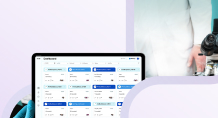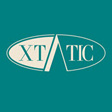Good Clinical Practice (GCP) serves as a global benchmark for quality standards in clinical trials involving human subjects. Governments adopt and translate GCP into regulations to govern such trials.
Aligned with the guidelines set by the International Council for Harmonisation of Technical Requirements for Pharmaceuticals for Human Use (ICH), GCP places stringent emphasis on ethical considerations within the realm of clinical research.
With access to new technology that perfectly accommodates GCP principles, medical professionals have been able to implement key aspects of GCP guidelines into their research. There is software out there that is specifically designed to facilitate the use of good clinical practices and make sure to offer safety, be compliant with regulations, and foster reliability.
In this article, we will take a look at what exactly creates such software and how clinical studies can achieve continuous improvement through it.
Good clinical practice regulations
GCP regulations are designed to ensure the safety, integrity, and ethical conduct of clinical research.
These regulations cover various aspects, including:
- Personnel and research staff qualifications;
- Facility and equipment requirements;
- Study plans;
- Standard operating procedures;
- Final reports;
- The storage and retention of records, etc.
Adherence to GCP is crucial for maintaining the credibility and reliability of clinical trial data, ultimately contributing to the development of safe and effective medical treatments.
Key regulations governing GCP include those established by regulatory authorities such as the U.S. Food and Drug Administration (FDA), the European Medicines Agency (EMA), and ICH.
U.S. FDA regulations
In the United States, the regulatory framework for Good Clinical Practice (GCP) is primarily outlined in Title 21 of the Code of Federal Regulations (21 CFR).
Specifically, Parts 50 (1) and 56 (2) are pivotal sections governing the human subject protection and the responsibilities of Institutional Review Boards (IRBs).
- Part 50 addresses informed consent and the rights of study participants, ensuring ethical treatment.
- Part 56 focuses on the establishment and functioning of IRBs, crucial bodies overseeing the conduct of clinical trials.
- Additionally, Parts 312 and 314 delineate regulations related to investigational new drug applications (INDs) and applications for marketing approval of pharmaceutical and medicinal products.
These regulations collectively create a comprehensive framework for ethical and regulatory compliance in clinical trials within the U.S.
European Medicines Agency (EMA)
The EMA, as the regulatory body for the European Union (EU), provides GCP guidance through guidelines that align with the International Council for Harmonisation (ICH) E6 R2 (3).
This guideline, titled “Good Clinical Practice,” establishes rigorous standards for the design, conduct, recording, and reporting of clinical trials within the EU member states.
The EMA’s role is pivotal in ensuring that clinical trials conducted in the EU adhere to international ethical standards, promoting consistency, safety, and data reliability.
International Council for Harmonisation (ICH)
The ICH is a key player in global harmonization efforts for pharmaceutical regulations. Its guideline ICH E6 R2, also known as “Good Clinical Practice,” holds tripartite endorsement from regulatory authorities, industry experts, and health research professionals.
This guideline serves as the international gold standard for the conduct of clinical trials, emphasizing safety, integrity, and high data quality.
By aligning diverse regulatory requirements, ICH E6 R2 fosters consistency and facilitates the global mutual recognition of clinical trial data, enhancing the efficiency of drug development processes worldwide.
Implementing GCP standards in clinical trials
To understand how software can specifically enhance the implementation of GCP standards and their compliance with regulations, we must first take a quick overview of the specific guidelines of GCP itself.
These guidelines are as follows:
- Protocol development. Develop a study protocol aligning with Good Clinical Practice (GCP) standards for ethical and effective research.
- Informed consent process: Obtain voluntary informed consent, ensuring transparency and participant understanding in compliance with GCP.
- Ethics committee approval. Submit protocols for independent ethics committee approval, a GCP prerequisite for ethical trial initiation.
- Site selection and qualification: Choose trial sites capable of meeting GCP standards, ensuring regulatory and ethical compliance.
- Training and monitoring: Provide GCP training and implement monitoring processes for ethical research conduct and data integrity.
- Documentation and record keeping: Maintain transparent record-keeping aligned with GCP standards to ensure trial integrity.
- Safety reporting: Establish procedures for prompt adverse event reporting, complying with GCP for participant well-being.
- Data management and quality control: Implement robust data management and quality control aligned with GCP standards for reliable results.
- Audit readiness: Prepare for inspections by maintaining an audit trail and documentation, demonstrating adherence to GCP standards.
By meticulously following GCP standards throughout the various stages of a clinical trial, researchers and sponsors contribute to the credibility of their findings and prioritize the well-being of study participants.
Furthermore, we will further discuss how GCP software is specifically created to aid in that.
Key features of GCP software solutions
Good clinical practice software plays a crucial role in ensuring regulatory compliance and streamlining clinical trial processes.
It leverages technology to adhere to GCP standards, facilitating efficient management of trials and data.
Protocol adherence
GCP software plays a crucial role in upholding protocol adherence, ensuring that clinical trials are conducted ethically and align with regulatory requirements.
By automating checks and validations, the software minimizes the risk of protocol deviations.
Documentation and record-keeping
Efficient documentation and record-keeping are paramount in GCP compliance.
Clinical trial software solutions streamline this process, maintaining accurate and transparent records throughout the trial. This adherence to regulatory standards enhances transparency and traceability.
Informed consent process
GCP software assists in managing the informed consent process, a critical ethical aspect of clinical trials.
It ensures that participants receive comprehensive information about the study, promoting transparency and ethical conduct.
Monitoring and auditing
Facilitating monitoring processes and audit readiness, GCP software enables real-time assessments.
This feature allows for the regular verification of trial data, participant safety, and protocol compliance, contributing to overall trial integrity.
Data management and quality control
GCP software ensures robust data management practices, covering aspects from collection to validation and verification.
By adhering to the highest standards of data quality and reliability, the clinical trial management systems contribute to the credibility and integrity of the trial results.
Benefits of using GCP software for compliance
From reporting trials to ensuring each best practice on an international level – your company can enjoy many benefits from good clinical practice training and software.
Ensuring data integrity with GCP software
GCP software ensures data integrity by implementing robust data management practices. It facilitates accurate and secure data collection, validation, and verification, reducing the risk of errors and ensuring the reliability of clinical trial data.
Automated checks and validations within the software contribute to maintaining the highest standards of data integrity.

Learn how GCP softwareworks in tandem with regulations
Speak to an expert today, and see how our on-demand IT talent and augmented teams can efficiently deliver value for your project.

Managing documentation with GCP software
GCP software streamlines documentation and record-keeping processes. It centralizes all trial-related documents, ensuring easy access, version control, and organization. This not only enhances efficiency but also ensures that documentation adheres to GCP standards.
The software’s features enable comprehensive documentation management, reducing the likelihood of missing or inaccurately recorded information.
Auditing and monitoring in GCP software
GCP software plays a pivotal role in auditing and monitoring clinical trials. It provides real-time monitoring capabilities, allowing for regular assessments of trial data, participant safety, and protocol compliance.
Automated audit trails within the software contribute to audit readiness, making the process smoother and ensuring adherence to GCP principles and regulatory requirements.
Integration of GCP software in clinical research
GCP software seamlessly integrates into clinical research processes, offering a centralized platform for various trial activities. The software facilitates collaboration among different stakeholders, including investigators, sponsors, and regulatory authorities.
This integration ensures that all aspects of the trial adhere to GCP standards, promoting consistency and transparency in clinical research.

Whether you’re a startup, a Fortune 100 company or a government organisation, our team can deliver a solution that works for you.
BGO Software
Training and support for GCP software users
GCP software providers typically offer comprehensive training and support for users. Training programs and GCP courses ensure that users understand the functionalities of the software and how to navigate it in compliance with GCP principles.
Ongoing support services help users address any challenges, ensuring smooth operation and minimizing the risk of non-compliance due to user-related issues.
With the constant advancement of technology, we are obligated to find better ways to use it, not only for progress but for safety. Implementing software in good clinical practices is one of the places we have to seek constant improvement.
That is why BGO Software endeavors to better understand what GCP principles entail and how custom software is designed to facilitate them. GCP software holds a lot of benefits but they are hard to reap without understanding why they exist.

















